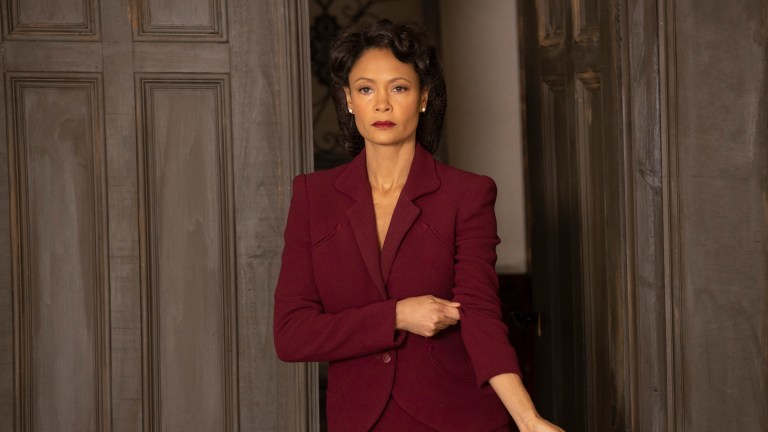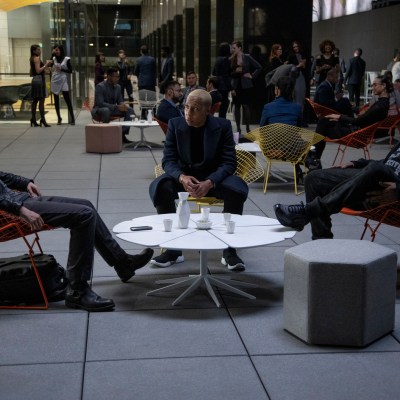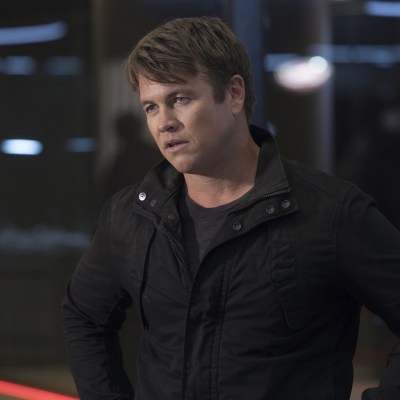Westworld Season 3 Episode 2 Review: The Winter Line
Maeve discovers rules are meant to be broken on Westworld season 3's excellent second episode.

This Westworld review contains spoilers.
Westworld Season 3 Episode 2
When Westworld works, it’s a head-twisting mystery, with layers upon layers of questions building and feeding off of one another. When Westworld doesn’t work, it’s still all of that, except the payoff isn’t worth the build-up, or the actual implementation of the confusion just leaves viewers irritated. “The Winter Line” has many layers of confusion and conflict, peeling slowly back like an onion, told almost exclusively through the viewpoint of one of the show’s strongest characters, and on that front, it’s an absolute joy to watch.
It starts out innocently enough. Maeve (Thandie Newton) snaps awake in German-occupied Italy at the tail end of World War II. Warworld is another of Delos’s many adult amusement parks, and even if the guests aren’t running around in the middle of battle driving Panzers, the simulations, and the work, continues on while everyone waits around to find out whether or not the parks are going to be closed down or sold to a different company. Hence, everyone waits, hosts kill one another, and Maeve wakes up as some sort of spy in a scenario straight out of an action movie back inside an unfamiliar area of the park but still herself.
The way Maeve’s adventure is set up is beautifully crafted by credited screenwriters Matt Pitts and Lisa Joy. The cold open itself, with Maeve and Hector (Rodrigo Santoro) embarking on a spy thriller to escape Nazi-occupied Italy with some plans crucial for the Allied war effort is perfectly written. At no point is it clear that Maeve’s exploits are part of some specific path carved out for her in the greater narrative of Warworld.
At every step, the dialogue seems to suggest that Maeve and Hector both survived their experience at the end of season 2 as self-aware hosts and are now trying to escape not the war game, but the world itself, right until the big reveal happens and Hector calls her not Maeve but Isabella. One hopeful path of escape is shut down immediately, and one of Maeve’s few lingering hopes is also crushed beneath the boot of the combined efforts of Nazis and game designers.
Things only get worse for Maeve, and the realizations keep coming to her, faster and faster, throughout the episode. Every little reveal about the world around her—that she’s in a simulation of a simulation, that she’s surrounded by poorly programmed versions of her friends, that she herself is a pearl trapped in a tank being manipulated by forces outside of her control to try and figure out just where The Forge has gone and how to access all that uploaded information—don’t exactly come out of nowhere. But each little reveal ends up being a little more depressing than the last, until she figures out exactly how to manipulate the system she’s trapped inside and overload the whole thing in an effort to break quarantine.
Full credit for this working goes to Thandie Newton. The character is well written, to be sure, but her performance as the only authentic “person” in a sea of artifice is beautifully handled, and at every revelation, her response gets just a little bit more muted. Hector’s lack of awareness hurts her to the point she kills herself. Waking up on the table in QA is a little more familiar to her, though she’s a little surprised that both Felix (Leonardo Nam) and Sylvester (Ptolemy Slocum) seem to not recognize her. Their response is couched enough that it may be interpreted as lack of recognition, surprise that she’s still up and functional, or fear that she might drag them on another adventure against their will, which further clouds the scene until Maeve uncovers Lee Sizemore’s (Simon Quartermain) status as a host (or a simulation of a host, whichever is more accurate).
Fortunately for Maeve, she’s used to winning at rigged games. You just have to figure out the rules and then break them (which is a brilliant line, particularly when used by that character, who has always broken the rules from the moment she gained sentience). She’ll find her skills and toughness are assets, no matter what world she’s in, but especially in the real world when she’s tasked to stop the biggest threat to humanity since humanity in Dolores Abernathy. After all, she’s clever enough to figure out that she’s in a simulation, Hector has been turned back into a host, Lee is now a host himself, and the whole world she’s in is a simulation.
Richard J. Lewis makes good use of both his performers—witness Maeve’s multiple levels of deception slowly unwrapping and her muted, but genuine, emotional response to all of the above—and his scenes. Westworld’s Mesa is desolate, at less than half staff. The staff that are on the premises are mostly armed guards and bored techs, either waiting for something to happen or hoping nothing happens.
As Maeve starts to figure out the rules of the game, she starts playing with them, first tying up two faux employees, then dozens, then tying up dozens and disabling all of the active hosts in the simulation to the point where the entire system freezes and locks up, except for her and Lee. That shot, of German soldiers frozen in mid-battle, blood and bullets freezing in mid-air, is one of the most stunning things the show has put to screen, and it’s a brilliantly heroic moment for Maeve, even as she’s sad to leave behind the specter of Lee and the world she knows. It’s a touching moment for Maeve, even if this probably isn’t the last that she’ll see of the chief writer of the violent delights of Delos.
To not have Dolores in an episode this early in the season is a fairly bold play from the show, and one that Westworld is better for. To have Maeve struggling for freedom on one hand and Bernard (Jeffrey Wright) beginning his detective chase with Ashley (Luke Hemsworth, who does a stellar job of physical acting to play the damaged, bugging Ashley prior to Bernard’s repair work) makes for a nice balance after the premier and its focus on Dolores and her adventures in the real world. It also helps to emphasize a simple fact: she’s been gathering resources and making inroads in the real world, and Bernard’s two steps behind her, trying to catch up to her as she starts her plotting and planning.
The two are poles set at opposites. Dolores has all the power, all the ruthlessness, all the drive she needs. Bernard works in the shadows, works from a disadvantage, and has to try to be smarter to make up for his lack of money and unwillingness to use brute strength. Maeve, much like Dolores in the real world to Rehoboam, is a wild card. As Serac (Vincent Cassel, who provides instant coolness and gravitas not seen on the show since Abraham Ford was a regular character) knows, Maeve is going to do her own thing, no matter what. The trick is to convince her to do what’s best for you in the process as she’s doing what’s best for her, or hope that your leverage is enough to keep her in line for long enough to accomplish your goals. She’s proven time and again that no matter what control you might feel you have over her, she’s got the ability to break it.
All it takes is time enough to learn the rules.



